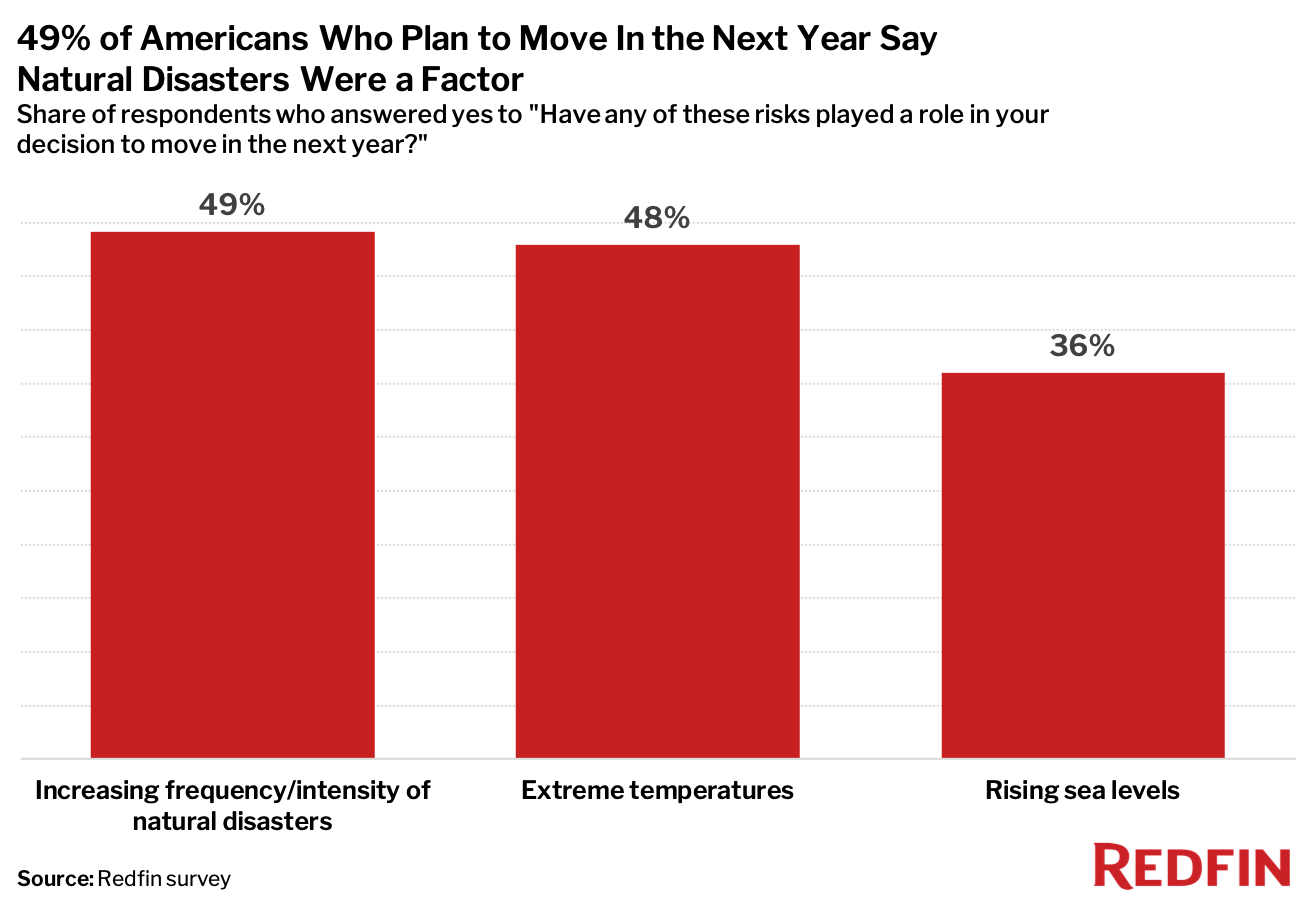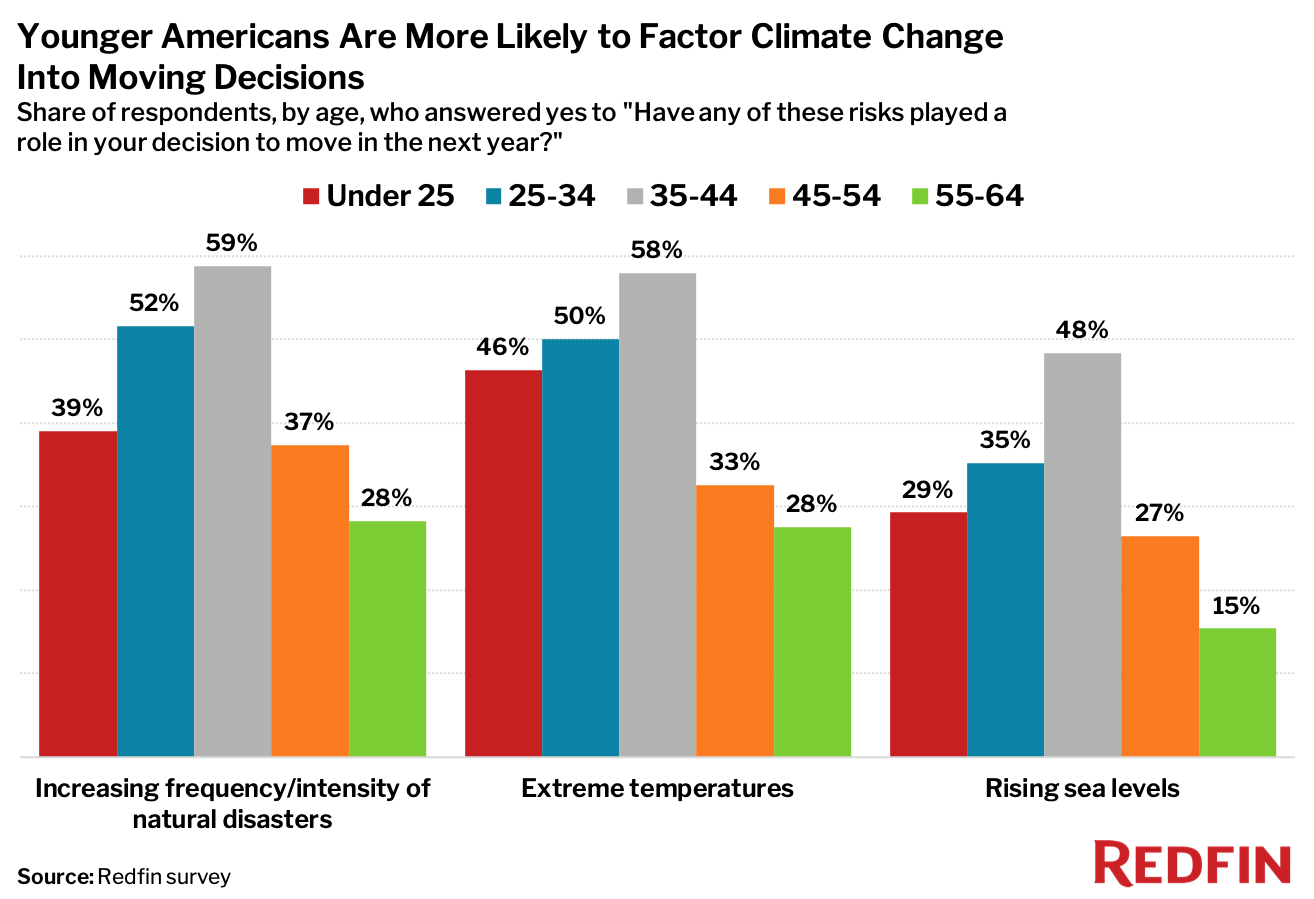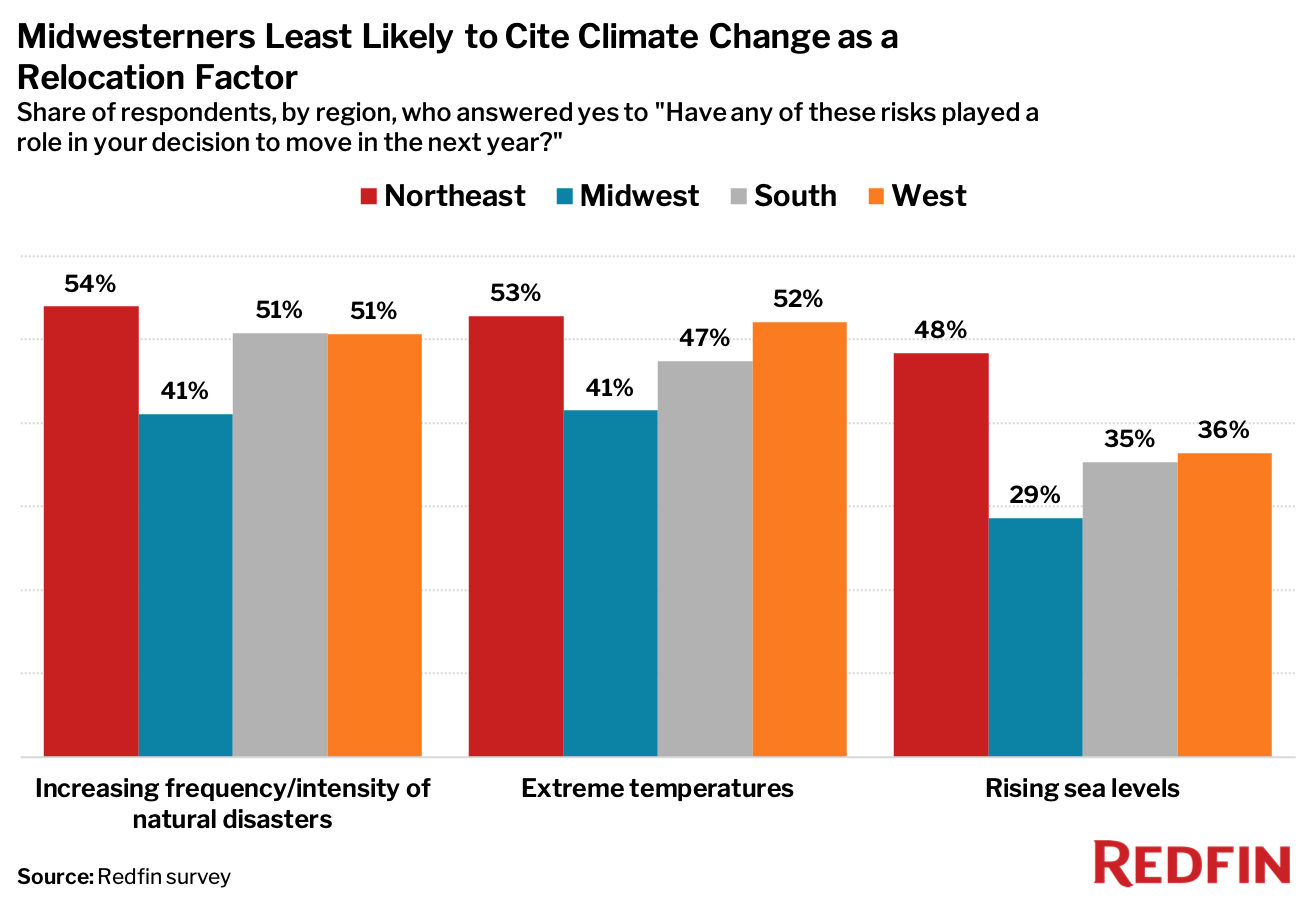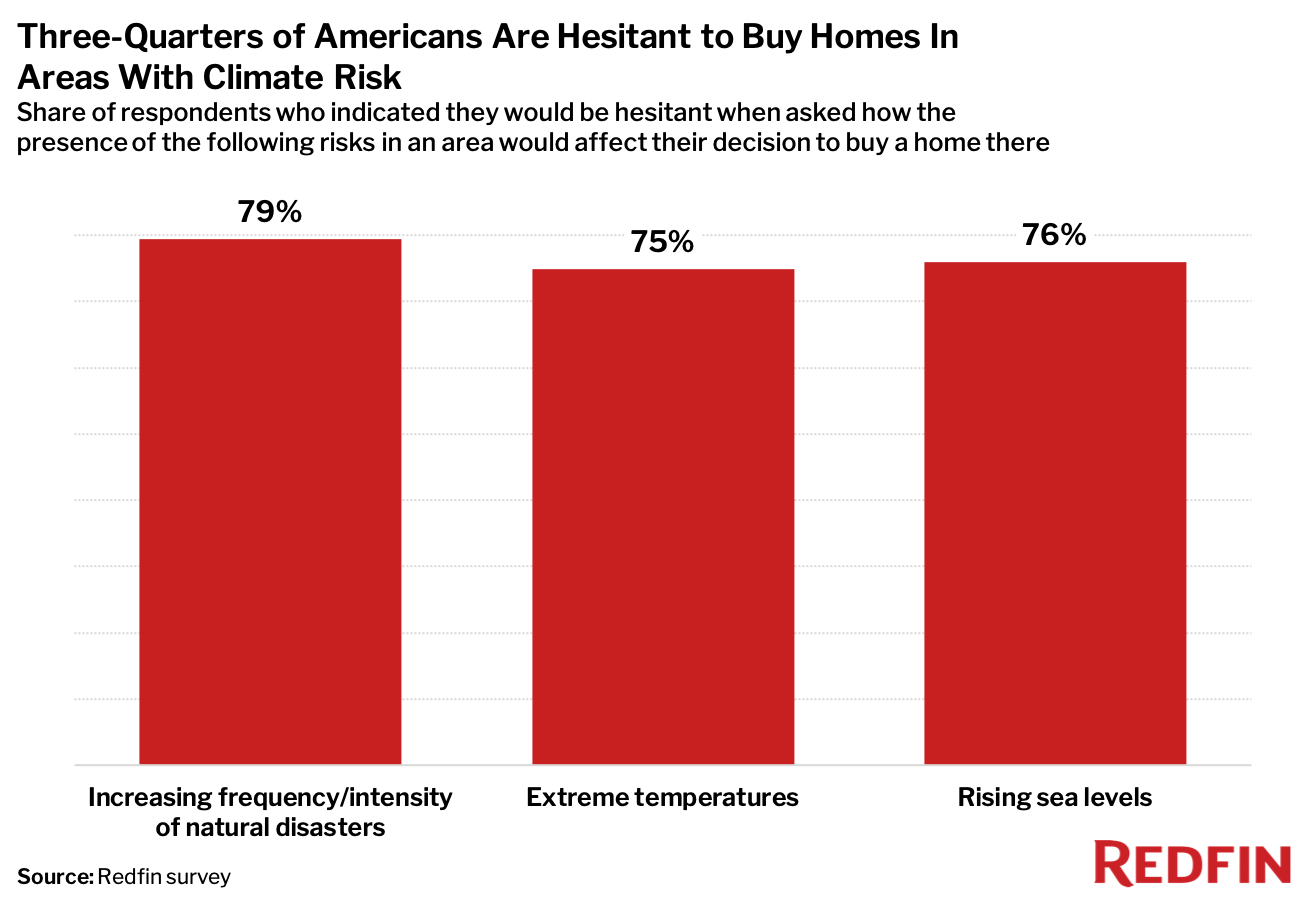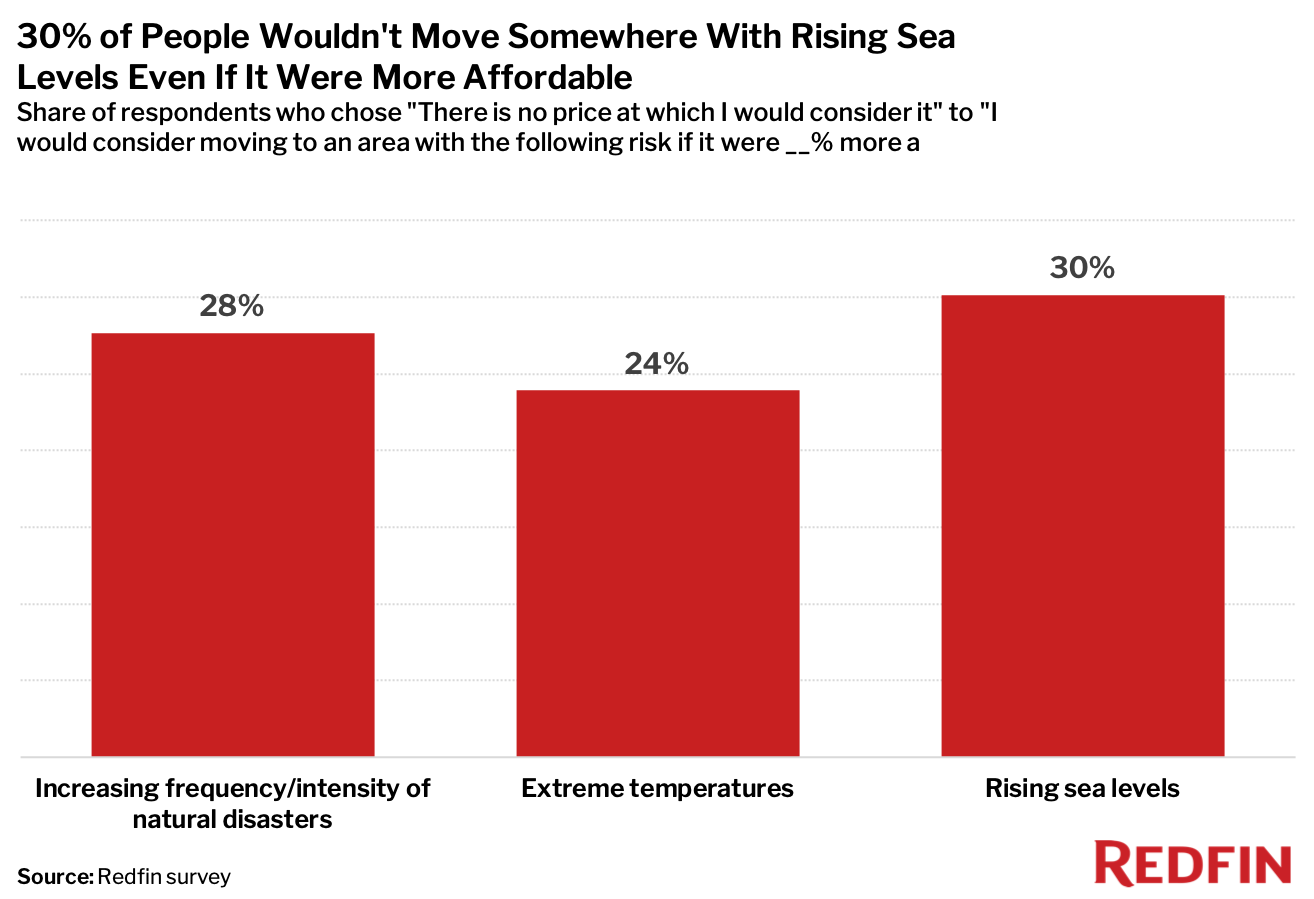Many Americans are factoring climate change into their decisions about where to live, according to a new survey featured in a report from Redfin, the technology-powered real estate brokerage. About half of respondents who plan to move in the next year said extreme temperatures and/or the increasing frequency or intensity of natural disasters played a role in their decision to relocate.
Out of the 2,000 respondents surveyed, 628 planned on moving in the next year. People aged 35 to 44 were most likely to say that natural disasters, extreme temperatures and/or rising sea levels played a role in their decision to move, followed by respondents aged 25 to 34. Respondents aged 45 or older were less likely to indicate that these risks factored into their decision to relocate.
When broken down by region, respondents in the Midwest were the least likely to say that climate-change risks were a factor in their decision to relocate. For example, 41% of respondents in the Midwest said the increasing frequency or intensity of natural disasters played a role in their decision to move in the next year, compared with more than half of respondents in other regions.
“Climate change is making certain parts of the country less desirable to live in,” said Redfin Chief Economist Daryl Fairweather. “As Americans leave places that are frequently on fire or at risk of going underwater, the destinations that don’t face those risks will become increasingly competitive and expensive for homebuyers.”
Many people have left the Napa, CA area due to an increase in wildfires in recent years, according to local Redfin real estate Christopher Anderson.
“After wildfires destroyed much of Napa in 2017, the community rallied together and rebuilt, but when fires ravaged our area again in 2020, some folks just decided they were done,” Anderson said. “I had one client in St. Helena whose home burned down in the last fire and only half of it was covered by the insurance company. She relocated to New York.”
Nearly 80% of all 2,000 respondents said that increasing frequency or intensity of natural disasters in an area would make them hesitant to buy a home there. A slightly lower share—about three-quarters—would be hesitant to buy a home in a place with extreme temperatures and/or rising sea levels.
About a quarter (24%) of respondents said they wouldn’t consider moving to an area with extreme temperatures, even if it were more affordable than a comparable area without such risk. The share was slightly higher—28% and 30%, respectively—when Redfin asked about natural disasters and rising sea levels. However, virtually every part of the U.S. faces some type of climate risk, which may explain why these percentages aren’t higher.
